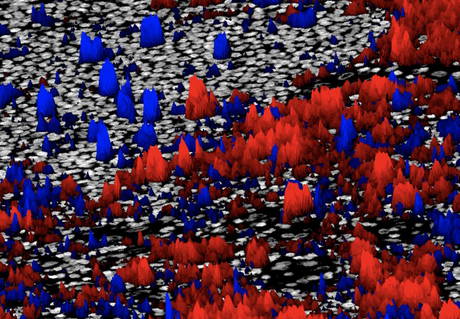Astronomy comes into play in the fight against cancer and helps oncologists interpret the results of biopsies, recognizing tumors that may respond better to immunotherapy.
This is what emerges from the study published in the journal Science and coordinated by Alexander Szalay, of the Johns Hopkins University, and by Janis Taube, of the Bloomberg Kimmel Institute for Immunotherapy.
Using the algorithms developed by astronomers for mapping the sky through the Sloan Digital Sky Survey, the researchers developed the AstroPath platform. The test bed of the technique was the analysis of biopsies of the most aggressive skin cancer, melanoma. The immune cells surrounding the tumor cells were observed and this allowed to identify a biomarker resulting from a mix of the six markers and which is able to predict the response to the immunotherapy technique called anti-PD-1.
PD-1 is a protein whose name is the acronym of 'programmed cell death 1', i.e. programmed cell death 1 and binds to T lymphocytes, the immune cells that enter the field to attack abnormal cells, such as cancer cells .
In particular conditions, however, instead of fighting the diseased cells, they help them and this happens if we bind to the protein called PD-L1 (programmed death ligand).
The anti-PD-1 protein prevents this binding and leaves the T lymphocytes free to attack tumors.
The problem is that only some patients respond to this form of immunotherapy and the AstroPath platform allows you to identify those who have the highest chances of reacting positively.
The next step will be to verify the platform's effectiveness in other forms of cancer, such as lung cancer.
Section of a melanoma tissue. The expression of PD-1 and PD-L1 proteins in blue and red (source: Seyoun Park, Ph.D)
For Drew Pardoll, of the Bloomberg Kimmel Institute and one of the authors of the study, “the AstroPath platform allows you to view multiple tumor markers simultaneously, providing much more information than a single biopsy.
In this way - he concludes - it helps to put into practice a precision cancer immunotherapy, identifying the unique characteristics of each patient to predict who will respond to a given immunotherapy, such as anti-PD-1, and who will not "







